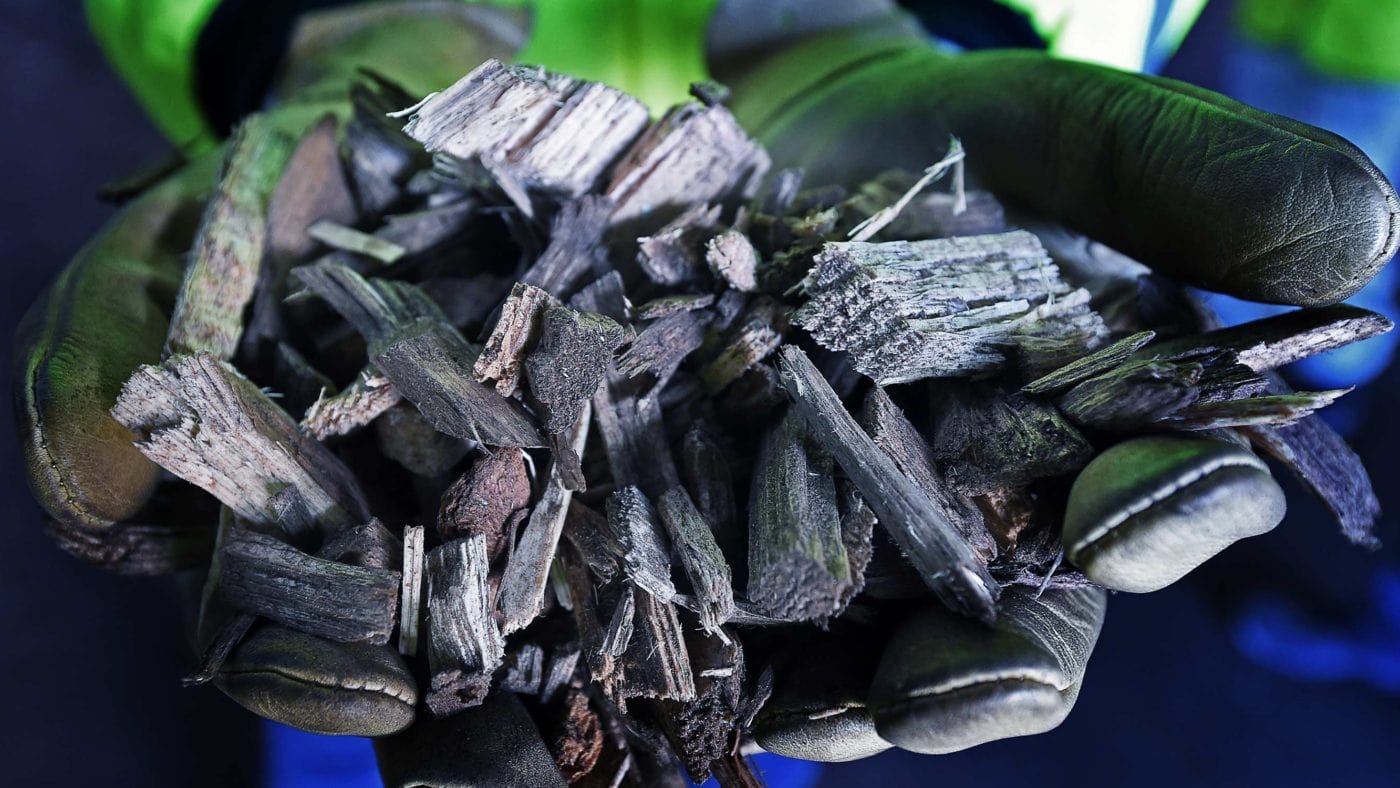The Government talks a good game about its environmental stewardship, yet taxpayers are paying the thick end of £1bn a year to subsidise energy whose claims to be ‘renewable’ are highly contentious. Even the Business Secretary, Kwasi Kwarteng, says the situation ‘doesn’t make any sense’. Whoever the next Prime Minister is, they ought to take a long hard look at the Drax power station in North Yorkshire.
Originally a coal-fired plant, the company has gradually converted the facility so that it burns wood pellets instead. None of this would be possible without the largesse of you, the British taxpayer. Indeed, last year alone Drax earned some £893m in government subsidies for burning the pellets, known in the industry as ‘forest biomass’.
Clearly, wood pellets are less harmful to the environment than the coal the plant burned previously. The environmental case for burning biomass still rests on a dubious assumption: that CO2 released when burning them is balanced out by the CO2 taken from the atmosphere when replacement trees are grown.
This simple plus/minus carbon accounting belies a more complex picture. It rests on two assumptions that don’t necessarily hold true: firstly, that carbon released when wood pellets are burned is recaptured by newly grown trees; second, that the wood being burned would have released carbon dioxide naturally when it rotted down.
As Prof John Sterman of the Massachussetts Institute of Technology notes: ‘Wood bioenergy can only reduce atmospheric CO2 gradually over time, and only if harvesting the wood to supply the biofuel induces additional growth of the forests that would not have occurred otherwise.’
The European Academies Sciences Advisory Council goes further still. It now states that using wood biomass for power “is not effective in mitigating climate change and may even increase the risk of dangerous climate change.’ [emphasis mine].
But even if you still buy the environmental argument, there are serious questions over the cost of generation. Drax has so far benefited from over £4.7bn in subsidies and expects to get another £5bn in the next five years. (Nor does the company pay for the CO2 its biomass plant releases, as it is considered ‘carbon neutral’.) Perhaps most importantly, biomass is both more polluting and significantly more expensive than other renewables such as offshore wind (as Tory MP Pauline Latham has noted on CapX).
What’s more, the company imports those pellets – mostly from the US, Canada, and some from the Baltic states. It was this situation that prompted Kwarteng to tell MPs that this was ‘a huge cost financially and environmentally . . . [it] doesn’t make any sense to me at all’. Environment Minister and lifelong green campaigner Lord Goldsmith has also said he ‘would question the model which requires the import of a vast amount of timber’.
It is difficult to understand the Government’s broader strategy on carbon capture, which is geared towards storing 30 megatons of CO2 per year by 2030. As it stands, the state spend over £800m a year subsidising Drax to burn wood pellets, but only £130m a year on tree planting and peatland.
The next phase in Drax’s evolution to becoming a ‘green’ energy company is the proposal for Bioenergy with Carbon Capture and Storage (BECCS). The process involves burning fuel, like wood pellets, and then capturing the CO2 from the exhaust fumes through a chemical process that turns the gas into a liquid, which is then pumped into rocks.
On the surface it sounds like a boon for the post-Covid, post-Brexit economy, with the promise of 10,000 new jobs and all sorts of positive spillovers through local contracts linked to the project. There is a fairly massive ‘but’, however – the cost to the taxpayer of BECCS is projected at £31.7bn. To put that figure in context, if we simply handed out the money to 10,000 people instead of subsidising the plant, the UK would have 10,000 new millionaires, each worth £3.1m. That’s one way of doing levelling up!
To make matters worse, BECCS could also mean power shortages in the surrounding area, as the plant will have to decrease its capacity in order to meet the project’s operational criteria.
All of this ought to give ministers serious pause for thought as the Government embarks on a consultation, launched last week, on the future of biomass in the UK energy mix. A party that believes in the free market should be intensely wary of tying itself to the mast of unsustainable, uneconomic energy generation in this way. It is particularly hard to credit given the enormous pressures on both household budgets and the public finances that is coming down the track thanks to soaring energy bills.
If the next PM is serious about running a more frugal, efficient government that puts taxpayer value front and centre, they should take a long, hard look at the amount of money we are spending on biomass and BECCS. I suspect they will quickly conclude that this supposedly ‘green’ technology is really an expensive load of hot air.
Click here to subscribe to our daily briefing – the best pieces from CapX and across the web.
CapX depends on the generosity of its readers. If you value what we do, please consider making a donation.


